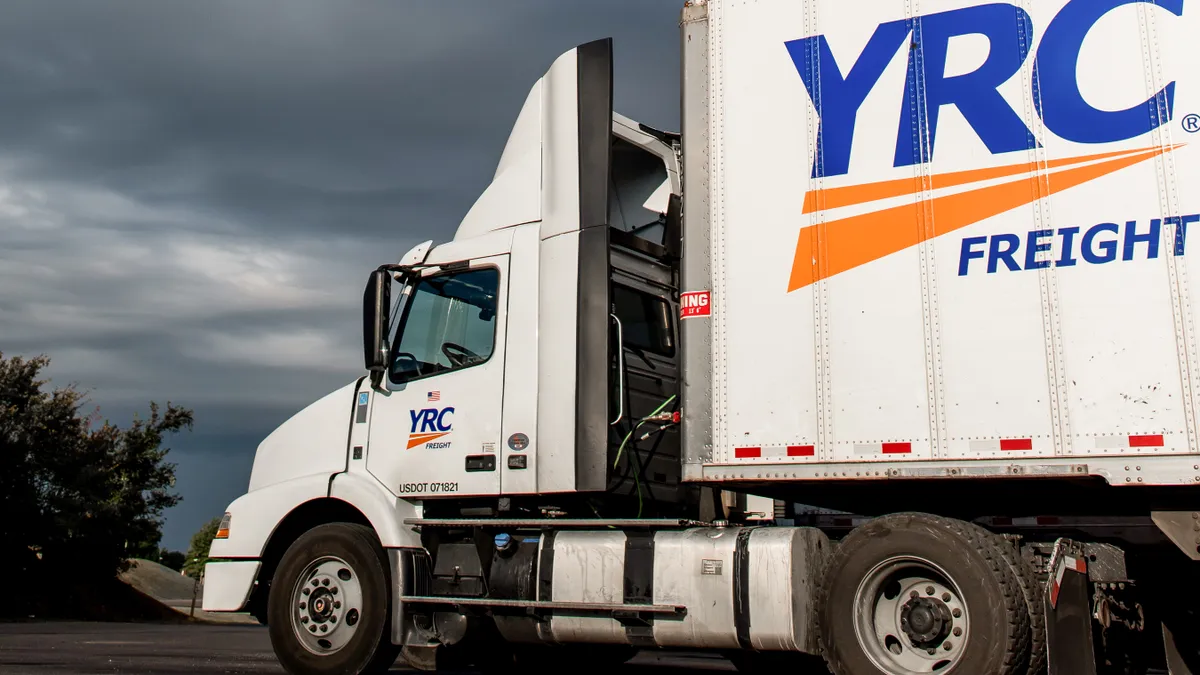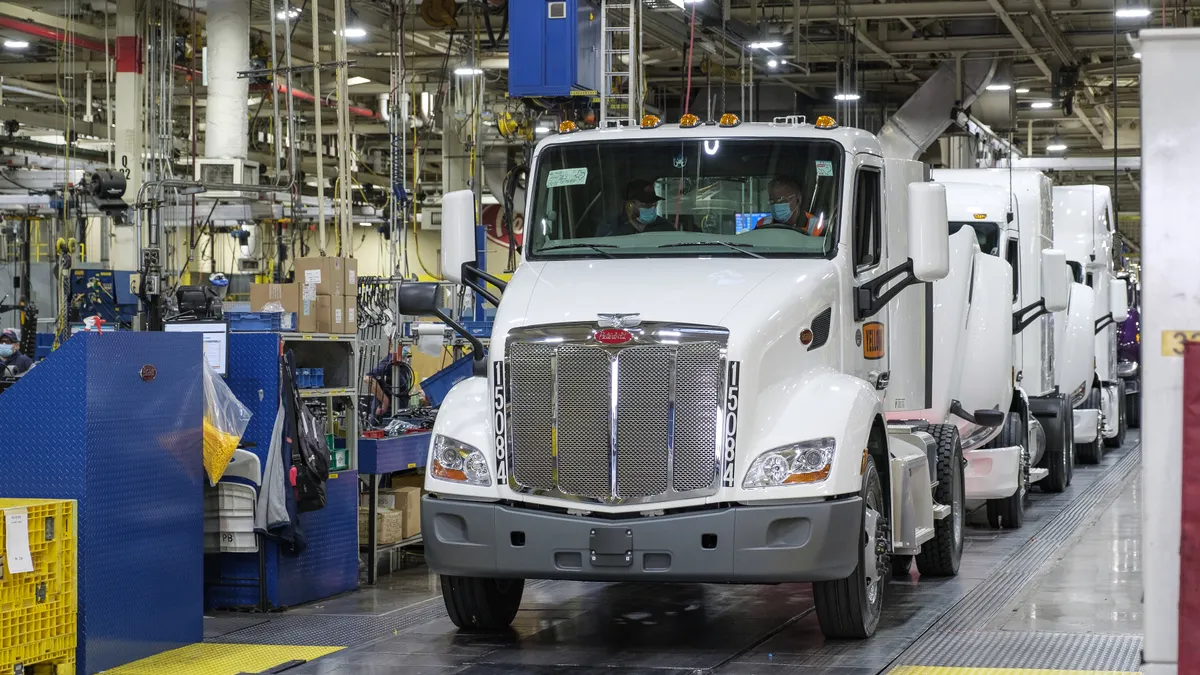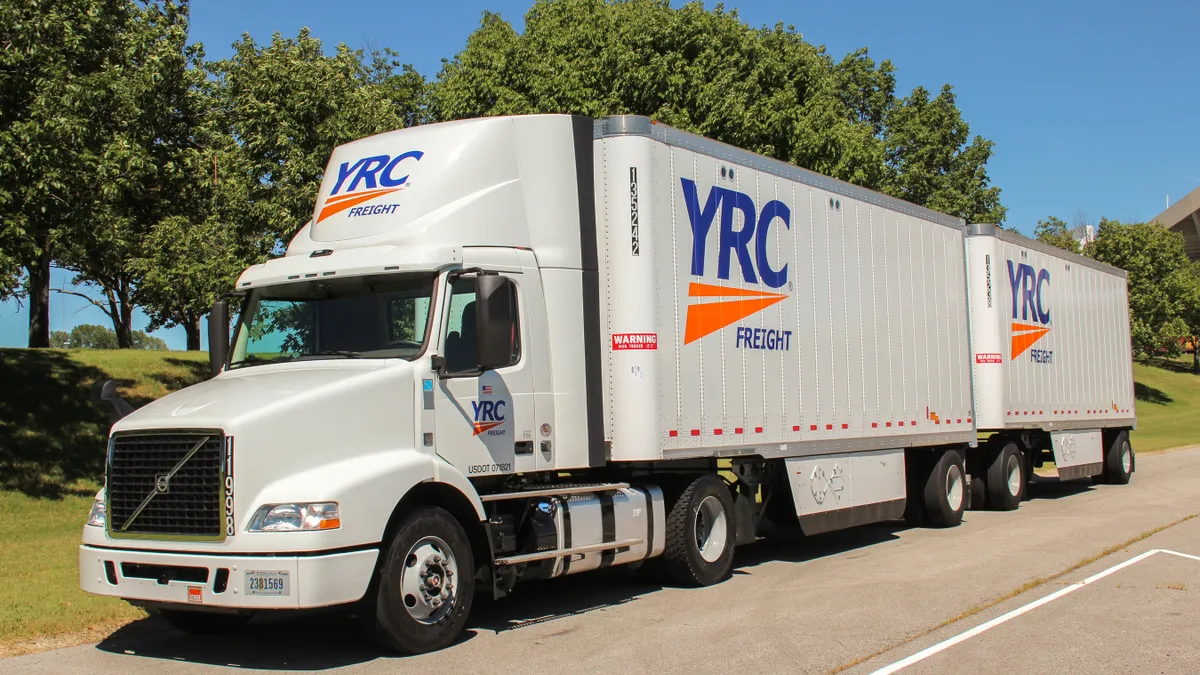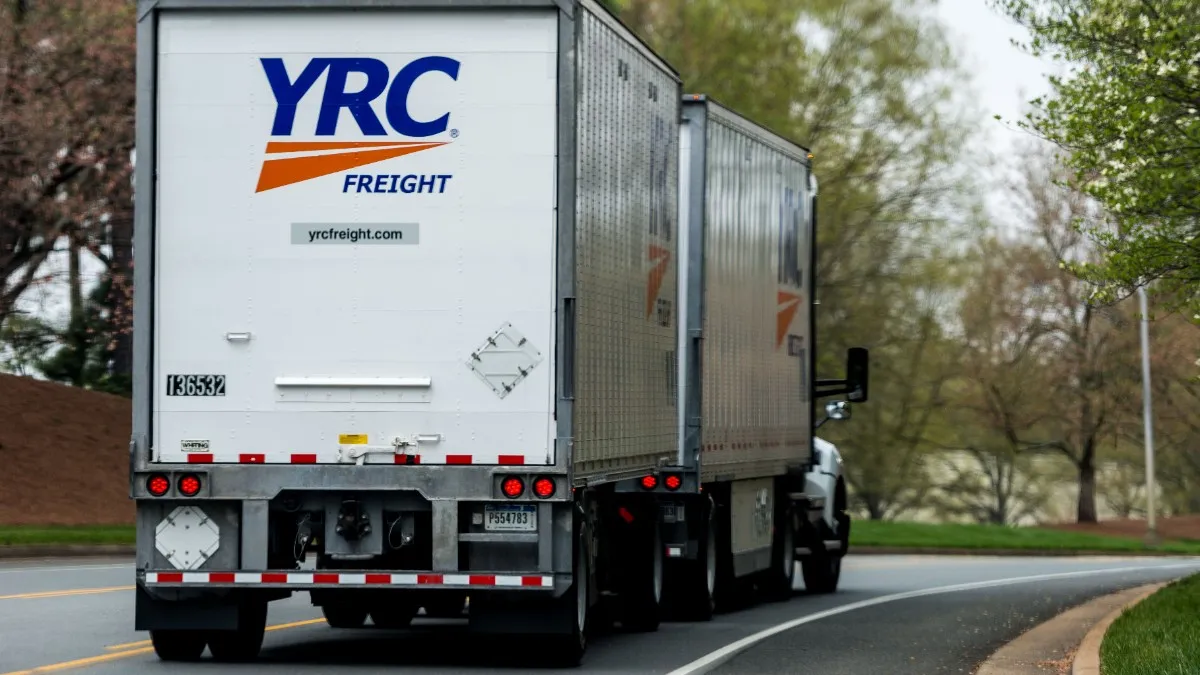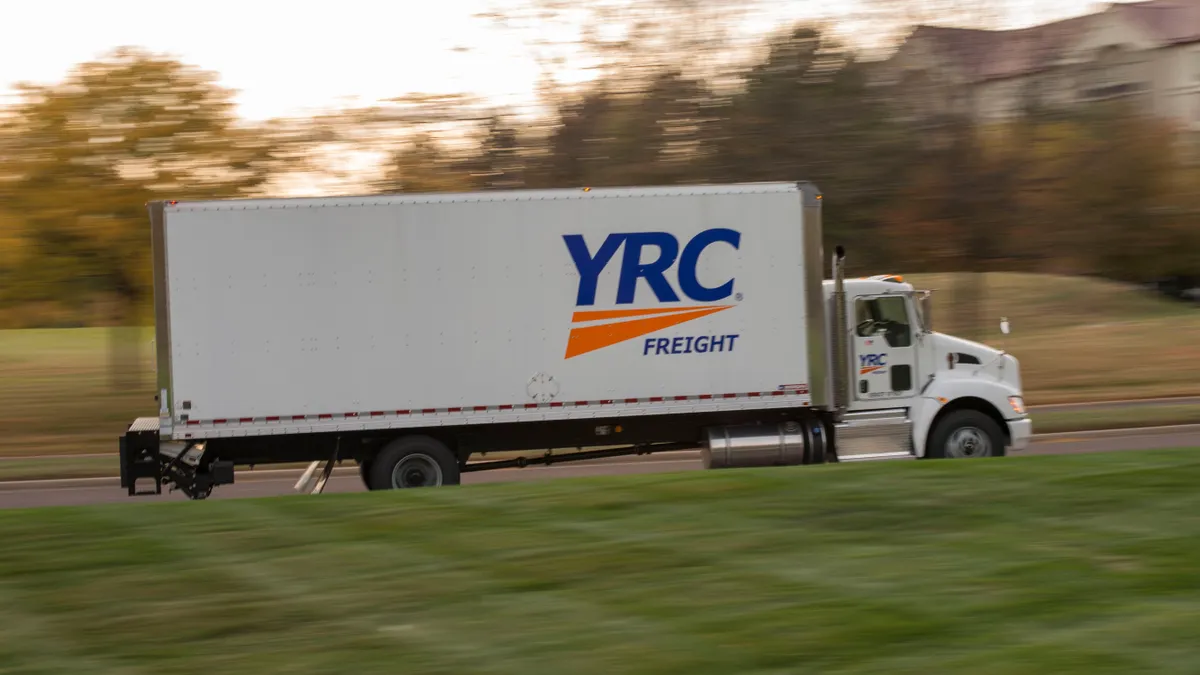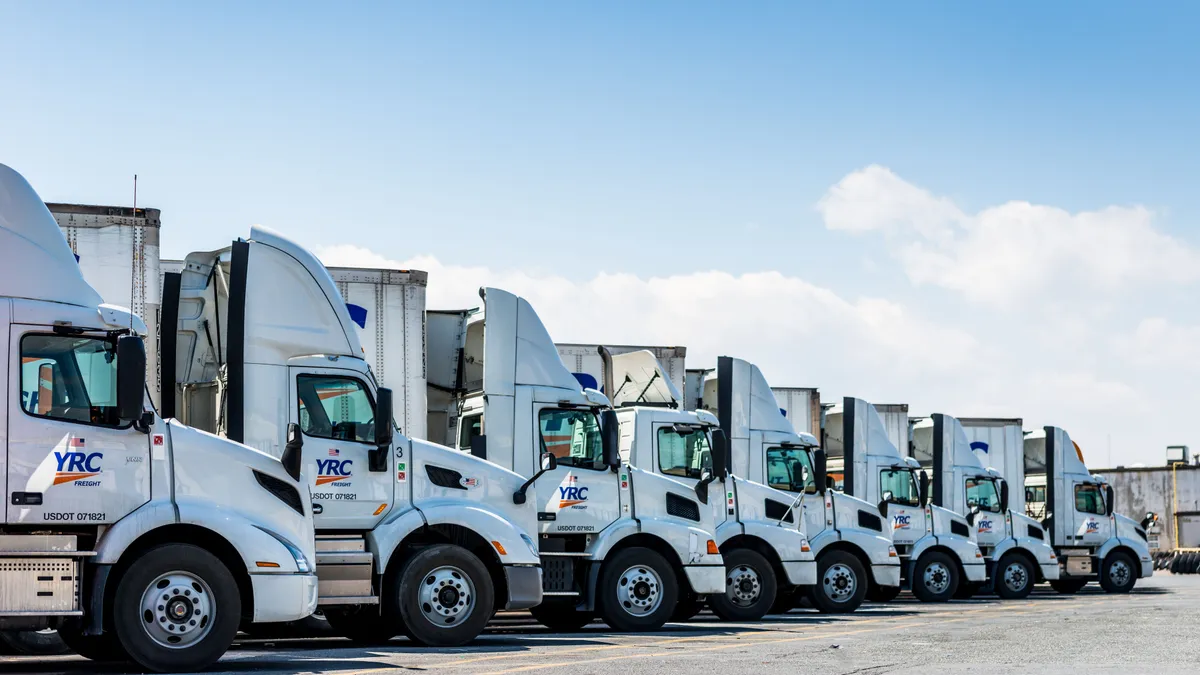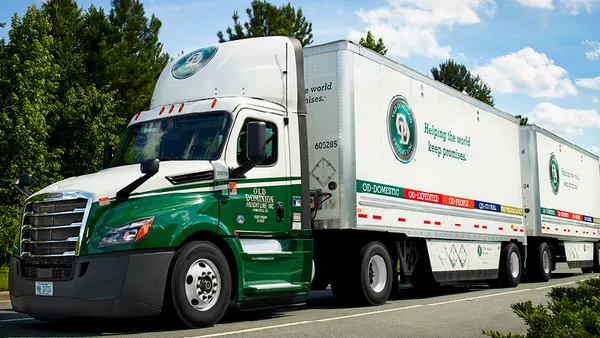Dive Brief:
- YRC Worldwide Inc. told investors during its Q1 earnings call on Monday that it approached lenders to waive its minimum adjusted EBITDA covenant for every quarter in 2020. A key goal during the coronavirus crisis is to improve liquidity, according to CFO Jamie Pierson.
- Net income for Q1 2020 was $4.3 million, a slight improvement compared to the same period last year. YRC officials noted the $39.3 million in property sales it made in the quarter boosted its Q1 profit into black ink. YRC reported its revenues shrunk 2.7% in Q1 2020, following outbreak of COVID-19 in the United States.
- As the COVID-19 crisis hit YRC, March volumes went down 11.3% year over year, according to Pierson. Preliminarily April numbers were down 23.9%. But volumes "appear to have stabilized and with the states lifting those orders. We are hopeful that we will begin to see some positive sequential moves in the coming weeks, if not months," he told analysts. Nevertheless, YRC has sought to get more time to make payments to union funds, cut executive pay and applied to the federal government for a relief package.
Dive Insight:
The coronavirus has not made it easier for fleets struggling to put 2019's problems in the rear-view mirror. Instead, YRC's improvements made in ledgers and in strategic plans saw their effectiveness weakened by the pandemic. The company reported at the end of 2019 that it was already on a defensive position against labor costs and competitive headwinds just as the pandemic struck.
After a year that included a damaging UAW strike and a slowing industrial market, YRC entered 2020 with an eye on improving financial performance. YRC got a five-year labor contract, refinanced its term loan and moved to consolidate the company's subsidiaries, which include New Penn, Holland, Reddaway HNRY Logistics and YRC Freight, according to its 2019 10-K.
But the COVID-19 pandemic has made YRC's task harder, as the company warned on Monday that it is "unlikely that we will be in compliance with the adjusted EBITDA covenant when it becomes applicable again at the end of first quarter of 2021." YRC officials said the company will need to either seek an extension of the waiver period, again, or modify the agreement.
YRC reported a $104 million net loss in 2019, on annual revenues of $4.87 billion. It told investors in its 10-K that it was in a "highly competitive industry, and our business will suffer if we are unable to adapt to competitive pressures." The company also said its pension expense could "increase significantly and have a material adverse effect on our business, financial condition and results of operations."
In mid-April, YRC disclosed that, because of COVID-19, it sought to delay some obligations to unions' health and pension funds. Ernie Soehl, director of the Teamsters National Freight Division, told YRC members on April 16 that the Kansas-based LTL company asked for a grace period for March payments, with possibly a few additional months' payments to be delayed in 2020. The Teamsters acknowledged the company's COVID-19 challenges.
"It is our understanding that the company has not sought any contribution relief or freebies from any of the funds," Soehl wrote. "Rather, the company is seeking to work with all of the funds in order to obtain a grace period (i.e., an extension of time) within which to make the required contribution payments."
Soehl noted YRC has not asked for any concessions and will honor wage agreements. And he noted CEO Darren Hawkins is part of President Donald Trump's Great American Economic Revival Industry Group for the transportation sector.
To help shore up its finances, YRC has also applied to the federal government for relief under the Coronavirus Aid, Relief, and Economic Security Act of 2020, according to the Wall Street Journal. Hawkins did not disclose the type or amount of aid requested.
YRC seeks to cope with a worsening economic environment by getting a waiver on minimum EBITDA performance from lenders. Hawkins also disclosed YRC would make cost adjustments, including employee furloughs; ending some discretionary spending; and cuts to executive bonuses and merit increases. Pierson said liquidity measures have worked, with cash going from $80.4 million at the end of 2019 to $118 million at the end of the Q1. The property sales helped YRC in that goal, he said.
YRC declined to take questions from analysts after statements from Hawkins and Pierson.


